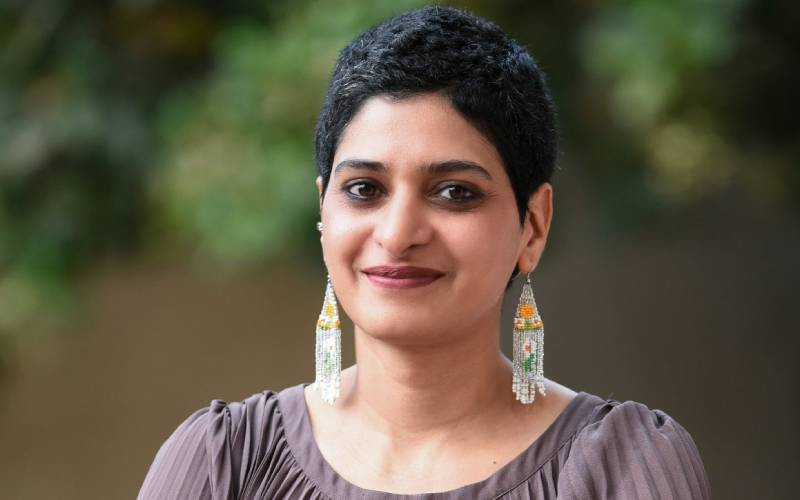As Melinda Gates settles for our interview at a hotel in Mexico City, an assuring handshake sets the pace. She then places her handbag on the floor and pulls her seat closer to the table.
She has a small fact-sheet listing some of the projects undertaken by the Bill and Melinda Gates Foundation in select countries. She is a co-founder of the foundation and a Trustee.
“I do better with notes,” she says as she notes down the questions.
She begins with a recollection of the formation of the Bill and Melinda Gates Foundation, born from experiences during their maiden trip to the Democratic Republic of Congo.
“When Bill and I got engaged in 1993, neither of us had been to Africa and together with a couple of friends, we went on safari.
“We loved the animals but we were really, really touched by the wonderful people and it stirred a series of questions in us when we learnt that millions of children in the rural areas needed simple medical treatment,” Melinda says.
“We learnt that children were dying from preventable diseases like diarrhoea and at the end of the trip we decided that a vast majority of the resources from Microsoft would go back to society,” she says of the outfit that is today recognised as the largest private foundation.
To prevent millions of children from dying from preventable diarrhoea, Melinda became part of a research programme to develop a vaccine.
In June last year, the Rotavirus vaccine was rolled out in Kenya through the intervention of the Global Alliance for Vaccine Initiative and an international coalition of partners including the Bill and Melinda Gates Foundation.
Rotavirus is the most common cause of diarrhoea and hospitalisation and deaths of children is common. But the support of interest groups has provided some interventions. The Bill and Melinda Gates Foundation is grounded on a mantra that every life has equal value and that every individual should be actively involved in conversations that influence their lives.
“As a couple, we believe that all lives have equal value and it does not matter if you were born in New York, Nairobi, New Delhi or Johannesburg. But it is clear that the world does not treat people that way,” she says.
Melinda belives Kenya is one of the trendsetters in reproductive health in Africa.
She articulates that the provision of fitting reproductive health services, especially among urban poor women, needs to be critically addressed and cites the Kenya Urban Reproductive Health Initiative in Korogocho and Viwandani in Nairobi, funded by USAID, as one of the efforts to meet those needs.
Women and children’s health are top of her priority.
She says planning and spacing of pregnancies not only saves mothers and children, but also raises healthier communities.
Stay informed. Subscribe to our newsletter
Even as one of the world most powerful women in the world, she is not embarrassed that in her travels, she gets teary listening to disturbing experiences of girls and women.
In a world where women are pitted against increasing adversaries, Melinda believes that there is a ray of hope setting in.
“When I see a woman with a cellphone in Kenya, Tanzania, Bangladesh or Philippines make mobile money payments, and even if she is illiterate goes to a vendor who helps her and she has access to finances, wow! That’s progress,” she says.
Melinda challenges telecommunications companies to appreciate women as strategic partners in growth and development.
“We can stimulate the mobile phone companies to actually market women and get their services to women. This keeps me hopeful on some of the dark days,” she says.
Reproductive health is key to the development of women, she notes. “During my trips in communities, I often meet women who talk about the access to affordable and appropriate family planning options to manage their family sizes,” she says, and adds that 210 million women have no access to contraceptives.
“I ran into women who were outraged that they did not have access to the tools that they needed to have desired number of children they can support.”
Cognizant of the myths that abound that contraceptives cause sterility, she asserts that the contraceptives her foundations handle undergo stringent regulatory checks to enhance their safety. “We should all be concerned by our health and especially what we put in our bodies, whether you are a man or woman,” she says, and calls for community buy-ins on health programmes to have better-spaced healthier children.
And as she leads the efforts in bringing down the number of women who die while giving life, Melinda acknowledges that her own country, the US, is the only nation where the number of women who died from birth-related complications had increased between 1990 and 2013.
“Certain areas in the rural US, in the south and some of the big urban area like Washington DC where we have the most impoverished people, have terrible maternal mortality rates.
“We know what to do, we have the money but we are not just doing it as a country. “Clearly we have a lot of work to do at home,” she adds.
Melinda emphasises the need for countries to own and fund their reproductive health systems.
She says that African countries need to formulate their own cost-effective family planning plans. “Everything that our foundation does is in partnership with governments and that is not always easy, sometimes it slows down things, but local buy-ins continually adds value to the projects,” she says.
On the power of citizen-led initiatives to improve health, she singles out Tanzania’s Citizen Voice and Action initiative.
Under such initiatives, communities are empowered to influence the quality, efficiency and accountability of public services.
“I am a huge believer in empowering citizens and all over the world we see that if you have a group of individuals who are not getting their health rights, and with the right information come together and approach the government, they are far more likely to make progress,” she says.
These advocacy projects have to be homegrown.
Early last month, the Gates’ foundation introduced a new parental leave programme to its 1,382 employees where both mothers and fathers get one year paid time off during the first year of a child’s birth or adoption.
This is part of a programme to promote healthier living among children.
“It should be acceptable that both the man and woman take time off from work and invest in their families.
“If a man takes time off and stays home with his child, there is 20 per cent more likelihood that the child will reach the fifth birthday,” she says.
Melinda believes that the gains of male involvement in health and development initiatives benefit the entire society.
“You have to get the men and boys involved because they are often the ones that hold the decision-making, power and sometimes the resources.
“Once they have the buy-in, it becomes easier to implement the country plans,” she observes.
 The Standard Group Plc is a
multi-media organization with investments in media platforms spanning newspaper
print operations, television, radio broadcasting, digital and online services. The
Standard Group is recognized as a leading multi-media house in Kenya with a key
influence in matters of national and international interest.
The Standard Group Plc is a
multi-media organization with investments in media platforms spanning newspaper
print operations, television, radio broadcasting, digital and online services. The
Standard Group is recognized as a leading multi-media house in Kenya with a key
influence in matters of national and international interest.
 The Standard Group Plc is a
multi-media organization with investments in media platforms spanning newspaper
print operations, television, radio broadcasting, digital and online services. The
Standard Group is recognized as a leading multi-media house in Kenya with a key
influence in matters of national and international interest.
The Standard Group Plc is a
multi-media organization with investments in media platforms spanning newspaper
print operations, television, radio broadcasting, digital and online services. The
Standard Group is recognized as a leading multi-media house in Kenya with a key
influence in matters of national and international interest.








